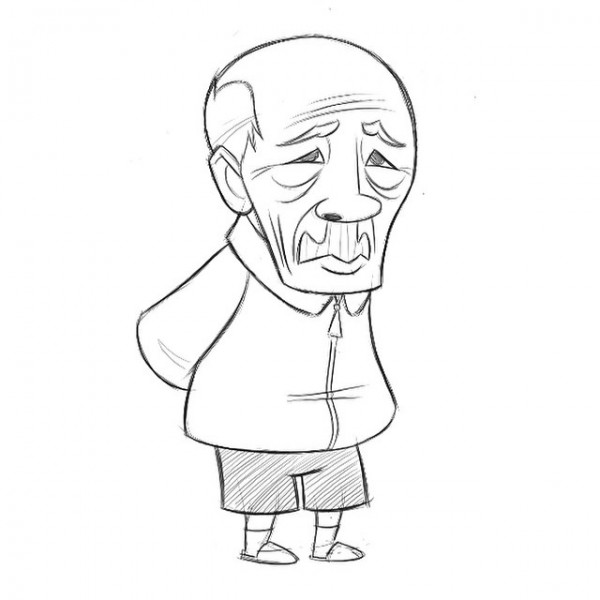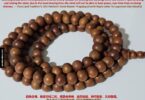 Question: There was a Buddhist son, whose old Father, a non-Buddhist but traditional Chinese man passed away. His non-Buddhist wake of another religion was held at his second son’s place. The Mother wanted to play Amituofo’s name using a Nianfoji (Buddha name chanting device) to urge Nianfo (i.e. mindfulness of Amituofo). Is this appropriate?
Question: There was a Buddhist son, whose old Father, a non-Buddhist but traditional Chinese man passed away. His non-Buddhist wake of another religion was held at his second son’s place. The Mother wanted to play Amituofo’s name using a Nianfoji (Buddha name chanting device) to urge Nianfo (i.e. mindfulness of Amituofo). Is this appropriate?
Answer: This is good, but even better is if someone dear (e.g. the family member/s) do Nianfo near the deceased’s body sincerely, using these guidelines: https://purelanders.com/2016/07/19/what-should-be-chanted-during-after-a-funeral (What Should Be Chanted During & After A Funeral).
Q: However, as the wake was at the non-Buddhist son’s home, the family there might not like the chanting, and since the Father seemed to be not affiliated with Buddhism when alive, the Buddhist son advised his Mother against chanting. What do you think?
A: Such advice is unskilful due to these reasons – [1] The Father was not of the second son’s faith anyway, which makes adhering to a Buddhism-free funeral not compulsory. If there was forced bedside conversion, it does not count as actual embracing of any faith. [2] The Mother, being the spouse and only parent of both sons, should have the final say on what should be done. [3] Traditional Chinese old folks, including the Father, are usually okay with Amituofo’s name being played, as Amituofo is very much a part of Chinese culture.
[4] It was probably the second son who insisted on a non-Buddhist funeral of his personal preference, without respecting his Father’s traditional beliefs which by default slants towards [3] above. [5] Nianfo is especially crucial to help the Father have the best rebirth, away from all suffering – which is what everyone in the family wishes, including the sons, Mother and Father himself. [6] There seems to be no sign of conflict, other than the Buddhist son’s self-imagined possibility? The Mother’s decision should be respected after reflecting upon these 6 points. In the first place, it would had been better for the Mother and first son to be more assertive, to take charge of the whole funeral, if they really wanted to more efficiently help the Father.
Q: Is it not better to refrain from Nianfo to ensure harmony during the wake for peaceful rebirth if the deceased is not yet reborn, as it might cause aversion to the Father if he is not receptive?
A: We must remember that a funeral is for welfare of the deceased, not so much the survivors. There is actually lower chance of a peaceful rebirth if the funeral’s style is held against the more accustomed traditional beliefs of the deceased. Nianfo is already minimal but crucial practice. Thus, the Mother (being the head of the family) and first son could turn on the Nianfoji and chant near the Father’s body sincerely. If someone objects, there can be discussion based on the 6 points above. Only if proven that Nianfo is not welcomed, should there be silent chanting near the deceased.
Even if the deceased was a non-Buddhist, there should still be Nianfo (silently at least) to encourage the person to Nianfo to reach Pure Land, instead of clinging to the possibly wrong assumption that the deceased might have adequate personal practice and external assistance to have a good rebirth. There are some who become wandering spirits because they expected the deities they believe in to bring them to a better place, when due to lack of personal good karma and receiving power (or non-existence) of those believed in, this might not happen at all. As such, Nianfo is always a must. It should even be done silently and privately at non-Buddhist funerals to guide the deceased, so as to not show disrespect to the hosts. If not, visiting such wakes does not benefit the deceased directly at all.
Q: There are still many Chinese old folks without proper Dharma education, who shun the subject of death, having the misconception that Amituofo is linked only to death, instead of also being a source of blessings in this and the next life. Thus, they might not like to hear Amituofo’s name when alive. If such habitual thoughts remain after death, will they cause the deceased to continue shunning Nianfo and even create negative karma due to aversion?
A: Such old folks should know by then that they are already deceased. Even if not, it is definitely time for them the realise so. As such, this is when it is appropriate to sincerely re-introduce them to Amituofo. When Nianfo is practised sincerely by the survivors, the deceased, if around, will sense the blissful protective blessings of Amituofo. They will be less likely to have aversion. This is why personal ‘live’ sincere chanting by family members is important – to more effectively touch and transform the minds of the deceased, to urge them to also sincerely Nianfo.
As we cannot read the minds, there is no point assuming the deceased might be unhappy. What matters is to do our best to guide the deceased during their final and most dangerous moments before rebirth. Dedicating merits from Nianfo to the deceased once in a while can help the deceased to realise the goodness of Amituofo and Nianfo too.
Q: If during the last moments alive, there was no sign of acceptance of Amituofo, while there is also no good karma to have anyone around to encourage Nianfo well, what should be done?
A: As the physical last moment in this life is seldom the spiritual last moment before actual rebirth, as the consciousness of the average person will linger around for some time, there is no need to look for a physical sign of acceptance of Amituofo before practising Nianfo (as support-chanting before or after death) to guide (the dying or deceased). Some important guidelines for doing so are at https://purelanders.com/2013/11/07/how-to-share-the-power-of-merits-guidance (How To Share The Power Of Merits & Guidance)
Once we do as advised, we are already the expression of the dying or deceased person’s good karma to be able to know about Amituofo. Whether the person is receptive or not is up to him or her. We just do our part best we can, as sincerely as we can. There can be gentle persuasion to Nianfo but there should never be forced bedside conversion using threats or force, that cause confusion, grief, fear or aversion. Such negative thoughts can lead to negative rebirth. If there is still strong resistance to Nianfo when dying despite persuasion, there should be silent chanting near the person, with dedication of merits to him and her, to help transform the mind to be more receptive. This is illustrated in this case: https://purelanders.com/2011/12/15/my-grandfathers-deathbed-experience (Grandfather’s Deathbed Experience).
Q: Given another chance, should the Father’s funeral be Buddhist-styled and vegetarian despite the deceased not being Buddhist?
A: The funeral should be Buddhist and vegan (vegetarian plus free from any animal by-products, five pungent roots and alcohol), as the deceased needs Buddhist practices done on his behalf the most then. As an analogy, even if an initially wilful child does not like medicine assumed to be bitter when it is really sweet, a caring parent will offer it anyway. Only if there is unresolvable family objection should it be otherwise. Even if the funeral is decided to be non-Buddhist, there be at least regular silent Nianfo near the deceased. Any opposite food offerings on the shrine and for visitors’ meals who come for the wake creates some negative karma (from demanding for killing) in the name of the deceased, which can jeopardise a good rebirth. This warning is stated clearly in Ksitigarbha Bodhisattva’s Sutra (Dizangjing).
Q: How can we systematically encourage the dying or deceased to Nianfo, for reaching Pure Land?
A: Advice along these lines should be repeated once a while (in the language familiar to the person), best aloud, if not silently (if inconvenient), followed by much Nianfo, best aloud, if not silently (if inconvenient):
‘Dear ______, you are already dying/deceased. What is most important now is that you Nianfo with me/us as sincerely as you can, so as to connect to the blessings of the most compassionate Amituofo [Hold up a picture of Amituofo], who will definitely come to bring you to his Pure Land, where there will be no more physical and mental suffering, but only great bliss. Please don’t be attached to your family, as there is nothing you can do for them any more. All will be well. Every one of us wish you to have the best rebirth, to meet Amituofo. This is why we are practising Nianfo, to guide you to Nianfo too. The best thing you can do for yourself and everyone is to Nianfo well. Your loved ones too will Nianfo to reach Pure Land to meet you when it is their time to go. Countless have practised the same way and are already in Pure Land. There is no more time to lose, as you might be reborn elsewhere if you do not Nianfo. This is why I/we are advising you to Nianfo sincerely. Let us Nianfo sincerely together now… Amituofo, Amituofo, Amituofo…. ‘
Again, the guidelines at https://purelanders.com/2016/07/19/what-should-be-chanted-during-after-a-funeral (What Should Be Chanted During & After A Funeral) should be followed. After each session of Nianfo, chant sharing of merits. Repeat the process as much as possible especially during the 8 hours after physical passing, and for 49 days which follow, which is the duration in which the person usually takes rebirth.
Q: If there are already auspicious sign(s) of a good rebirth, or having departed for Pure Land, is there still the need for continual Nianfo and charitable acts in name of the deceased for 49 days or beyond?
A: If the auspicious sign(s) are unmistakably genuine, there is no more need to do more. However, if uncertain, it is best to continue. It is also good as a personal practice to carry on guiding and dedicating merits with all beings in mind, which would also include the deceased in mind. A way to know if the deceased already has a good rebirth is to pray to the Buddha sincerely for a clear(er) sign. After making this request, Nianfo sincerely until signs appear. This method of practice is also stated in Dizangjing.




